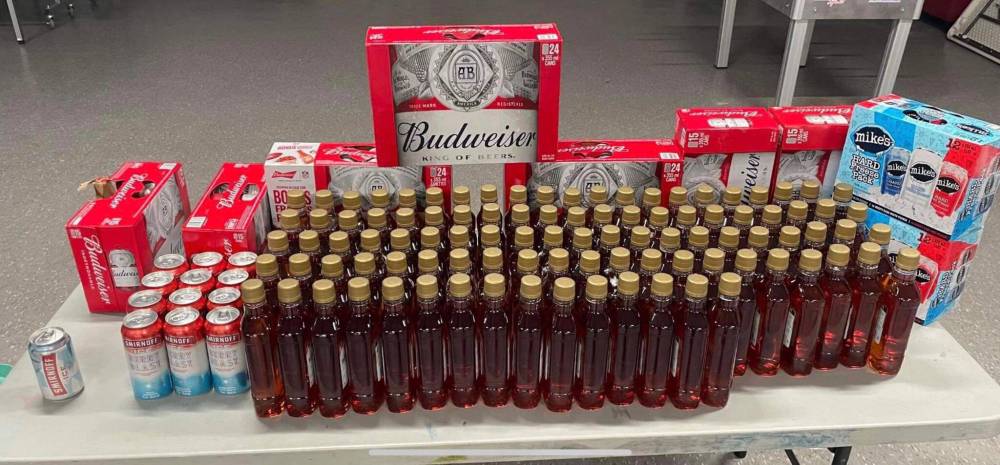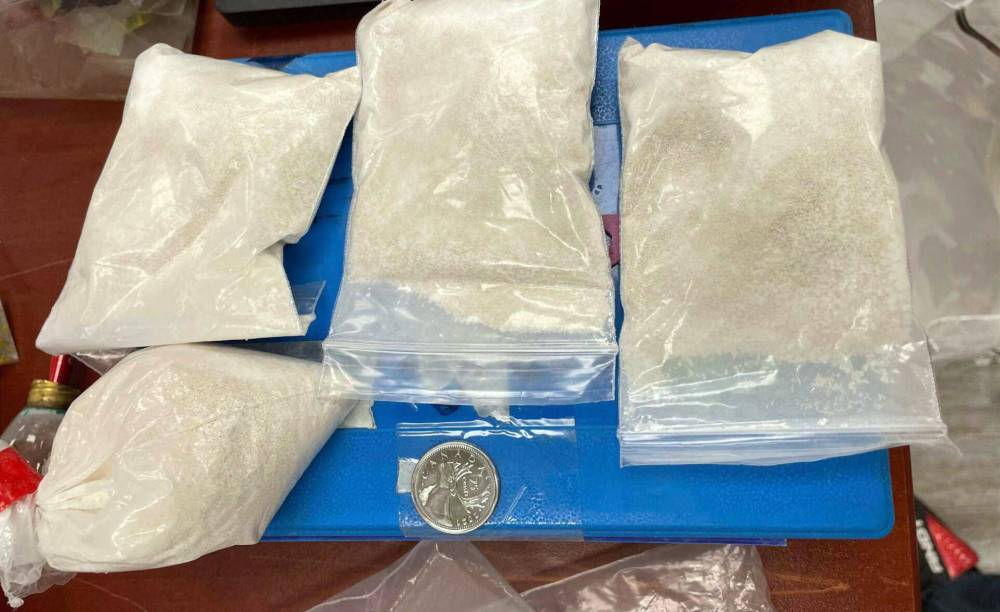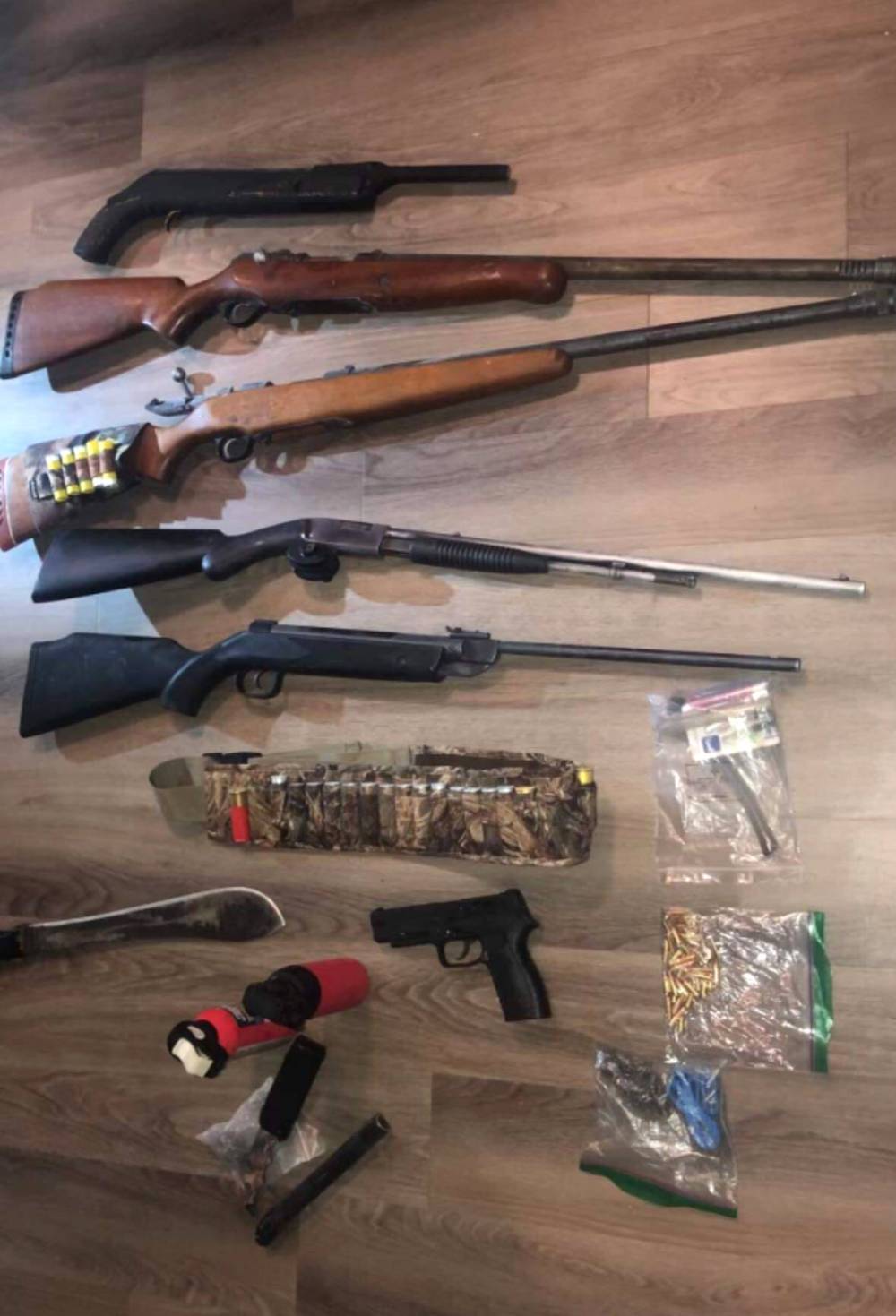First Nation declares state of emergency over drugs, alcohol; Indigenous group hired to control border, conduct searches
Advertisement
Read this article for free:
or
Already have an account? Log in here »
To continue reading, please subscribe:
Monthly Digital Subscription
$1 per week for 24 weeks*
- Enjoy unlimited reading on winnipegfreepress.com
- Read the E-Edition, our digital replica newspaper
- Access News Break, our award-winning app
- Play interactive puzzles
*Billed as $4.00 plus GST every four weeks. After 24 weeks, price increases to the regular rate of $19.00 plus GST every four weeks. Offer available to new and qualified returning subscribers only. Cancel any time.
Monthly Digital Subscription
$4.75/week*
- Enjoy unlimited reading on winnipegfreepress.com
- Read the E-Edition, our digital replica newspaper
- Access News Break, our award-winning app
- Play interactive puzzles
*Billed as $19 plus GST every four weeks. Cancel any time.
To continue reading, please subscribe:
Add Free Press access to your Brandon Sun subscription for only an additional
$1 for the first 4 weeks*
*Your next subscription payment will increase by $1.00 and you will be charged $16.99 plus GST for four weeks. After four weeks, your payment will increase to $23.99 plus GST every four weeks.
Read unlimited articles for free today:
or
Already have an account? Log in here »
Hey there, time traveller!
This article was published 14/03/2024 (596 days ago), so information in it may no longer be current.
A northern Manitoba First Nation grappling with drug and alcohol trafficking has hired an Indigenous group to establish a controlled border around the community — leading experts to caution it could be crossing legal boundaries.
Leaders in Shamattawa First Nation have declared a state of emergency and passed a band council resolution giving Anishinaabe Ambassadors Inc. the authority to search vehicles, luggage and homes for illegal drugs and alcohol in the community.
The group, founded by former Bear Clan leader James Favel, is operating alongside local band constables and First Nations safety officers.

The largest amount of alcohol previously seized by Anishinaabe Ambassadors Inc. included hard alcohol, beer and coolers, organization president James Favel said. (Submitted)
“We are monitoring every point of entry,” Favel told the Free Press Thursday. “We document everything we are doing. When we have community interactions, when we seize contraband, reports are made and they are sent to chief and council.”
Shamattawa, a community of more than 1,000 people located 750 kilometres north of Winnipeg, is a fly-in First Nation accessible by road only during the winter months.
It is supposed to be a dry community but has a long history of addictions, suicide and violence.
“The chief and council… are empowered to make decisions for the benefit of the community and its members,” reads the council resolution, which was passed March 3 and later posted on social media.
“Usage and selling of illegal drug substances have caused an increase in mental health (issues), violence, retaliation in the community and high concerns for the winter road season.”
According to the document, travellers who refuse searches will not be allowed to enter the community. It provides Favel’s group with the authority to search homes at the discretion of the chief and council.
Three councillors signed the resolution.
Chief Jordna Hill was unavailable for comment Thursday.
The group currently has 10 members enforcing a total ban on both illegally obtained and legally purchased alcohol and drugs. They are patrolling winter roads, the airport, snowmobile trails and residential streets, said Favel.
Some of the members are trained as First Nations safety officers, while others have limited official certification but utilize their “lived experience,” he said.
They do not carry weapons and are non-violent, he added.
“If somebody doesn’t want to be searched… then we just step back and record the incident, get a licence plate and that goes into a report to council.”

The largest amount of drugs previously seized by Anishinaabe Ambassadors Inc. involved 2 ounces of meth, organization president James Favel said. (Submitted)
To date, the group has seized alcohol and approximately 30 grams of cannabis from Shamattawa’s border.
Illicit drugs are turned over to local Mounties to be destroyed. Alcohol is taken to the local dump and poured out, Favel said.
Shamattawa RCMP confirmed they are aware of the group and the band council resolution, but are not involved in the searches.
Mounties continue to patrol, police the community and follow up on tips, RCMP spokesperson Tara Seel said by email.
“The RCMP appreciates that the winter road does provide an opportunity for wider access to remote communities, and our enforcement strategies align with the increase in that activity,” she said.
“Drugs are present in the community, as with every community in the province.”
RCMP have deployed their north district crime reduction enforcement support team to help track down people involved in the illegal drug trade in Shamattawa, Seel added.
When asked whether independent companies are allowed to conduct such searches, RCMP declined to comment, saying questions about the “intricacies in law and legislation” would be better explained by Manitoba Justice or a legal expert.
Criminal defence lawyer Scott Newman said the legality depends on the context of the search.
“The law is clear in Canada that warrantless searches are prima facie (accepted as correct) unreasonable, and that law enforcement officials and prosecutors have the burden to prove that a warrantless search is reasonable,” Newman said.
“Those conducting warrantless searches pursuant to a band council resolution must always keep in mind that… to the greatest extent these searches should be targeted and specific, based on specific information that is credible, compelling and corroborated.”
A well-publicized, general announcement that individuals may be subject to search in a dry community can lower a person’s reasonable expectation of privacy, but it does not extinguish it, he said.

Anishinaabe Ambassadors Inc. members have previously seized firearms, ammunition and weapons destined for First Nations communities, organization president James Favel said. (Submitted)
Shamattawa is not the only Manitoba First Nation to take additional measures to enforce substance prohibitions or enforce bylaws.
Favel said his organization has ongoing contracts in three additional Manitoba communities: Northlands Denesuline First Nation (Lac Brochet), Sayisi Dene First Nation (Tadoule Lake) and Mathias Colomb Cree Nation (Pukatawagan).
He believes his initial 30-day agreement with Shamattawa could be extended, saying contract periods in other communities typically range from three to six months.
In total, the group currently employs 42 members. Favel formed it during the COVID-19 pandemic to help support communities struggling to maintain and enforce quarantine restrictions.
The group previously worked with Shamattawa during the pandemic, he said.
It has also held contracts in up to 40 other communities, where members have confiscated large quantities of drugs, alcohol and weapons, he added.
The Assembly of Manitoba Chiefs said it does not maintain a list of First Nations with substance restrictions.
“It is the right of chief, council and their citizens on how to address these issues,” a spokesperson said.
tyler.searle@freepress.mb.ca

Tyler Searle is a multimedia producer who writes for the Free Press’s city desk. A graduate of Red River College Polytechnic’s creative communications program, he wrote for the Stonewall Teulon Tribune, Selkirk Record and Express Weekly News before joining the paper in 2022. Read more about Tyler.
Every piece of reporting Tyler produces is reviewed by an editing team before it is posted online or published in print — part of the Free Press‘s tradition, since 1872, of producing reliable independent journalism. Read more about Free Press’s history and mandate, and learn how our newsroom operates.
Our newsroom depends on a growing audience of readers to power our journalism. If you are not a paid reader, please consider becoming a subscriber.
Our newsroom depends on its audience of readers to power our journalism. Thank you for your support.
History
Updated on Thursday, March 14, 2024 12:28 PM CDT: Adds photo
Updated on Thursday, March 14, 2024 12:31 PM CDT: Adds photo
Updated on Thursday, March 14, 2024 6:27 PM CDT: Adds photos, comments.
Updated on Thursday, March 14, 2024 7:40 PM CDT: Clarifies photo caption


